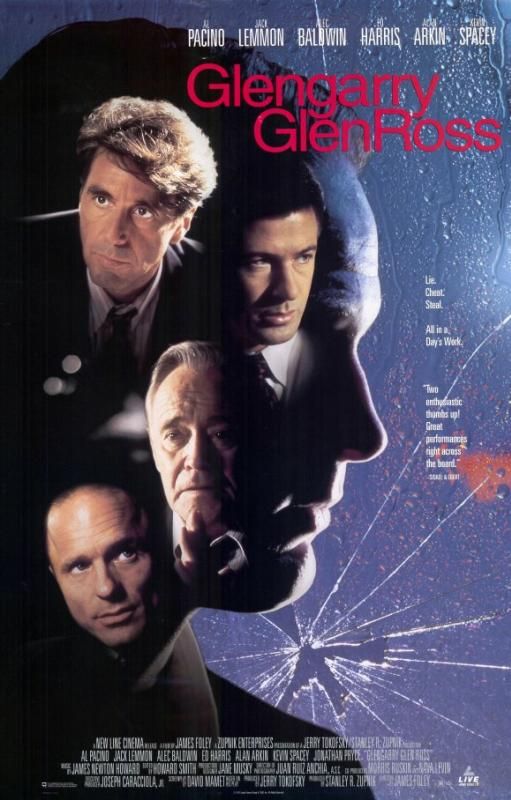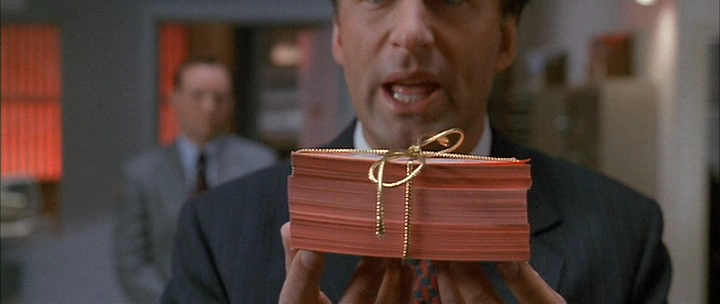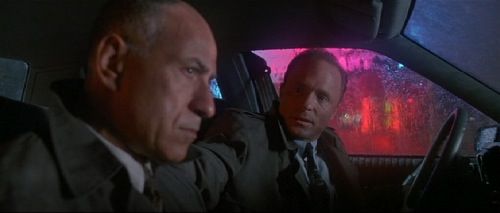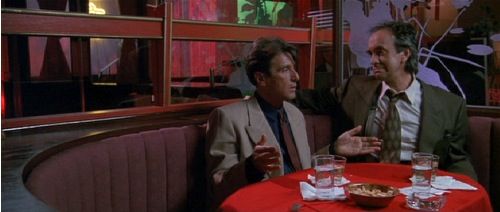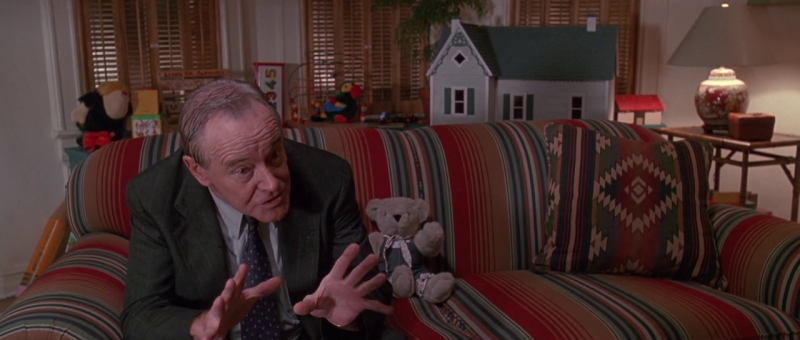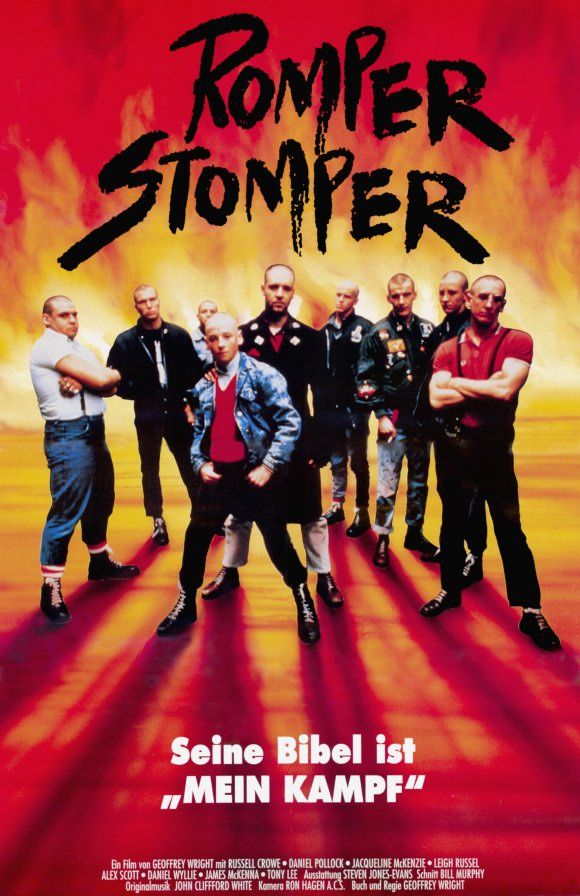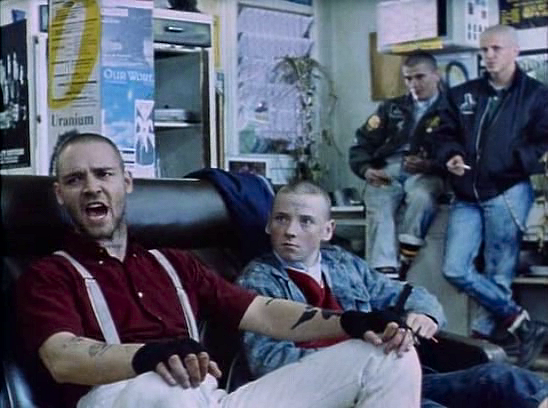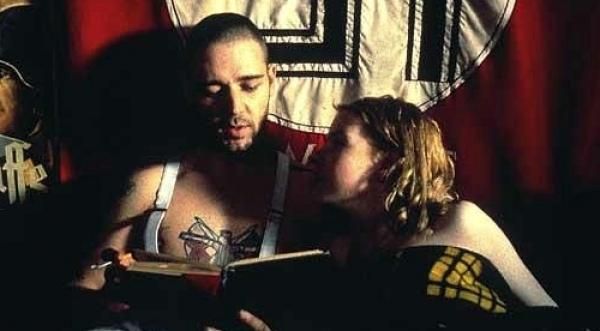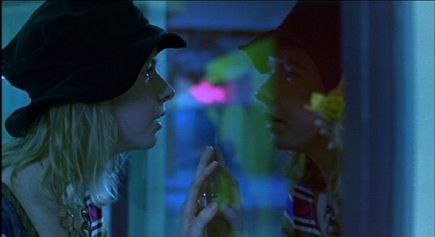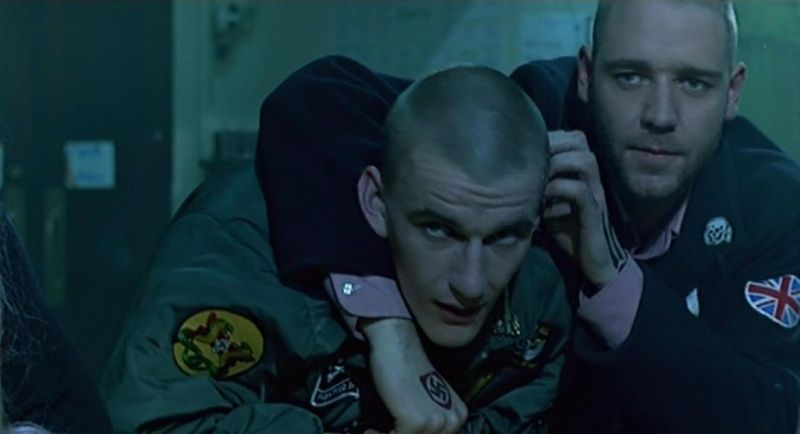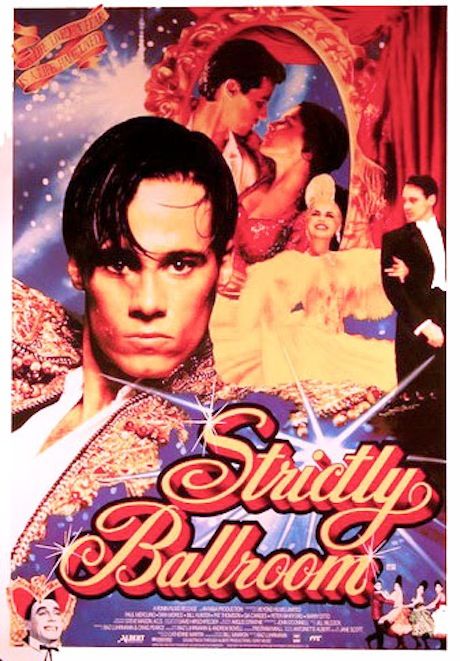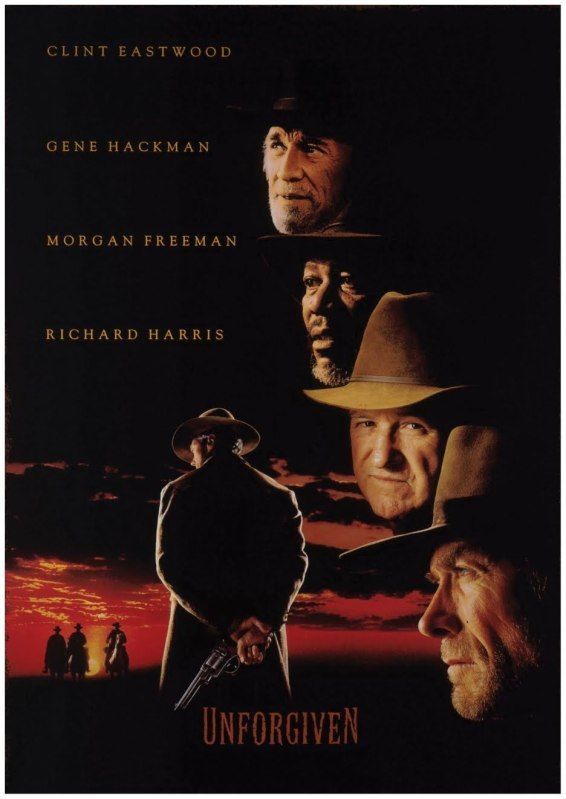Glengarry
Glen Ross
1992
Director: James Foley
Starring: Jack Lemmon, Al Pacino, Kevin
Spacey, Ed Harris, Alan Arkin, Jonathan Pryce
Oh,
David Mamet. Mamet brings to mind
certain things for me. Words, and lots
of them. But certain words, repeated
over and over again, not for their meaning but because of how they sound. Mamet is all about rhythm and sounds, rolling
the words around in your mouth before speaking them, relishing how the
syllables are formed. Plot is not the
point (well, not as much as usual).
Hell, characters aren’t even the point.
It’s about the words.
Four
men who sell shitty real estate to chump buyers out of a New York office are
told by management (Spacey and Alec Baldwin in a cameo) that they are now entered
into a competition for their jobs: the winner gets a car, the loser gets
fired. Shelley Levene (Lemmon) is
growing increasingly desperate; it’s been too long since he’s had a hot streak. Moss (Harris) utterly resents the contest for
their livelihoods, and rants to Aaronow (Arkin). Roma (Pacino) is on a hot streak, though, so
he’s sitting pretty… until their office gets robbed and the leads, the good
leads, the Glengarry leads, are missing.
Does
Glengarry
Glen Ross have the most talented cast of all time? Yes.
OK, it’s probably impossible to identify something like that, but Glengarry
Glen Ross is definitely top five.
Lemmon, Pacino, Spacey, Harris, Arkin, Pryce, Baldwin – holy fuck. To me, this, combined with Mamet’s dialogue,
are the big two reasons to watch this movie.
These are actors who are not only talented, but on the top of their
game. No one phones in a performance in Glengarry
Glen Ross, even in the supporting roles. Each one is phenomenal, managing to create a
fully rounded character, pushed to their limits. No one is in a rut, no one is complacent,
everyone is fully keyed in and committed.
Lemmon is so good, so sad sack, so desperate, so at the end of his
rope. Pacino does an amazing job of
playing what is clearly a Mamet-created character, so careful in how he speaks,
so syncopated in his conversation.
Spacey as the boss is fantastic as he walks the line between weak-spined
corporate puppet and genuinely dark and bitter character. With Spacey, you never wholly know where the
character stands in the film, but that’s a good thing because he is then
unpredictable. When he coldly turns a
character away, it’s shocking in its cruelty, because he never hinted at it
before.
Really,
the cast here is an embarrassment of riches.
Jesus, what a cast.
The
dialogue, oh the dialogue. There are
certainly moments of what I would call “normal” dialogue, but also plenty of
those utterly unique Mamet exchanges. My
favorite, and perhaps most distinct snippets, were those between Aaronow and
Moss as Moss complains over and over and Aaronow agrees somewhat
sycophantically. The repetition sounds
like a rat-a-tat-tat, like the rain on the roof of the car. I love the stuttering in Mamet dialogue
because it’s wholly on purpose. It
reminds me of a percussion drum line, every word in its exact right place,
every syllable on purpose, every pause intentional, combining to make some
novel melody that doesn’t sound quite like the symphony, but is intriguing
nonetheless. The actors and how they
speak these lines, that is why you should watch Glengarry Glen Ross.
I
like the noir atmosphere of the film.
It’s almost constantly raining in the first half of the film when the
central conceit is introduced. It’s
nighttime, and we saw lots of sinister crimson reds and depressing blues. The second half of the film looks
significantly less noir, with a lighter day casting sunlight into the
office. It’s an interesting change,
perhaps following Shelley Levine’s character arc. In the first night, when Shelley is incredibly
desperate and can’t catch a break, everything looks dark and bleak. But the next morning, after the robbery,
Shelley has made a sale he is excited about, and everything lightens up.
Ultimately,
while I really enjoy what I mentioned above, the entire premise of Glengarry
Glen Ross keeps me at arm’s length from loving the film. I abhor that sense of cutthroat competition
that Glengarry
Glen Ross is all about. When I
was in high school, as a clarinetist, I tasted of that competition. The world of classical music is ferocious in
its ridiculously high standards, and I knew it.
I knew that I had to be the best in order to have any chance at all of
making it, and I also knew that although I was good, I was hardly the best (one
of the best in my state, perhaps, but not the best overall). And I reached a decision about why I was
playing the clarinet – because I loved it, not because I wanted to
compete. So I knew I would not make it
my career, I never wanted to make it my career, I did not want that tyrannical
competition in my life. Conversely, one
of the things I love so much about where I work, where I teach, is that the
teachers I work with are so utterly uncompetitive. We share, we collaborate, we openly help one
another out. There is no sense of
hoarding; if I come up with a new idea for an activity, I consult my colleagues
for help because I know with them, the idea will be even better. I hate – HATE – the premise of Glengarry
Glen Ross. It makes my stomach
turn. It’s actively something I avoid in
my life. It pits person against person,
friend against friend, tearing people down and pulling apart
relationships. No thank you. I feel so uncomfortable watching this film
that I just can’t enjoy it. It’s too
hard. It’s TOO bitter. It makes me so ridiculously
uncomfortable. I’m sure others don’t
have this type of problem with the film, but it’s a bit of a deal-breaker for
me.
Glengarry
Glen Ross
is definitely unique in its talented cast, pattering dialogue, and over the top
bitter premise. Frankly, though, the
premise is too bitter for me to swallow easily.
It’s a very good film, absolutely, but it can’t sit too well with
me. It’s one of those rough things where
I know this is a good movie, I just have no interest in ever watching it again.
Arbitrary
Rating: 7/10
